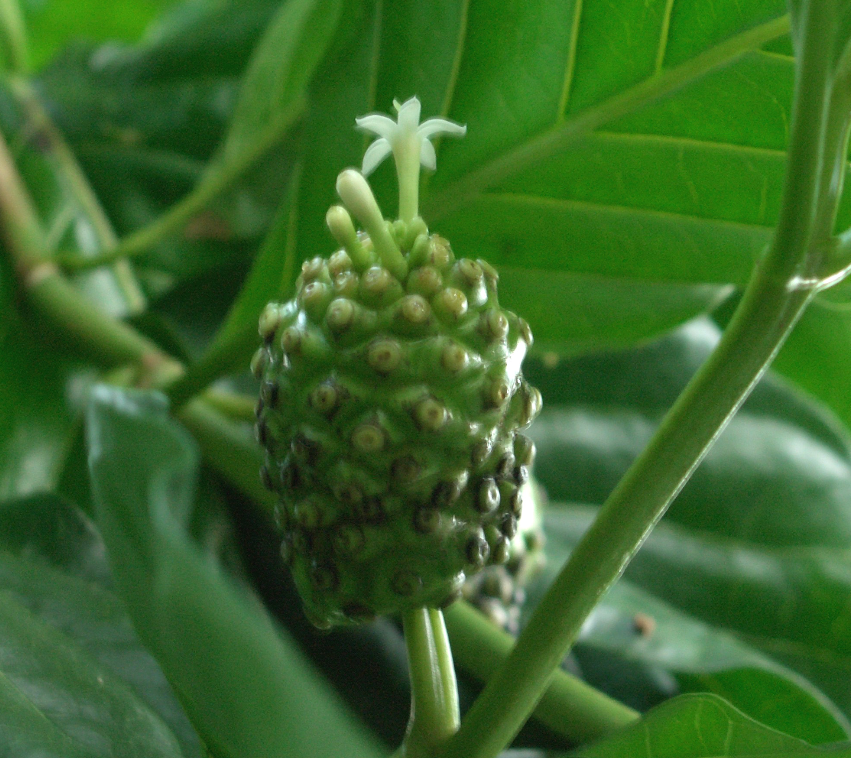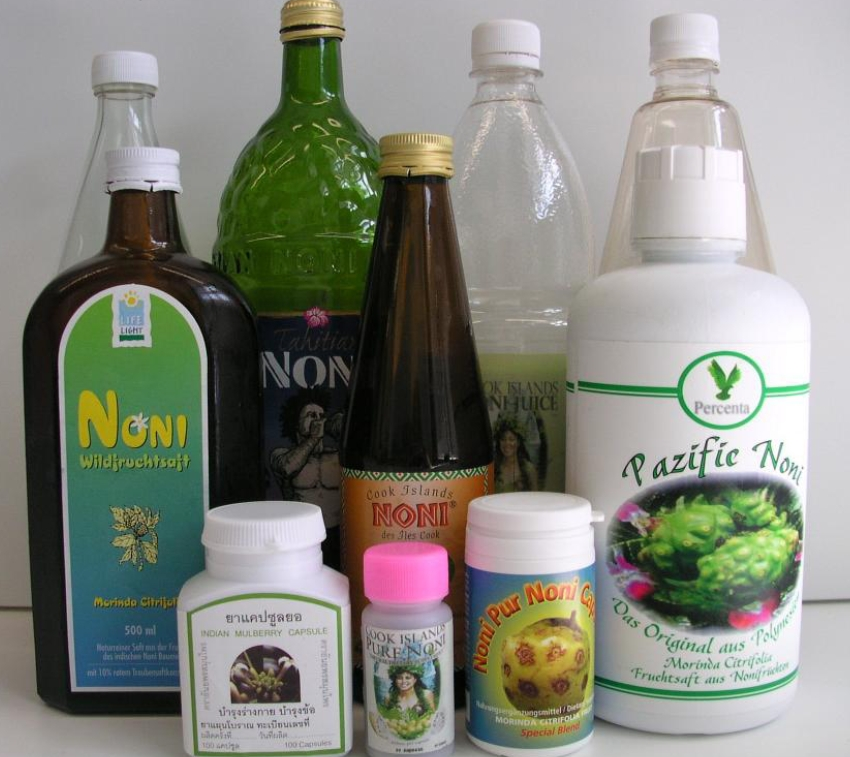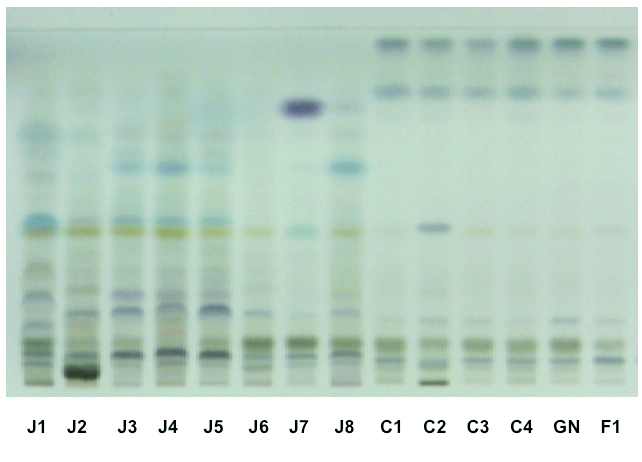Assessment of Food Supplements and Functional Foods
Fruits, vegetables, and beverages such as cacao and tea are major sources for plant secondary metabolites in our diet. Epidemiological surveys of dietary habits and disease pattern suggest disease preventing properties of compounds such as carotinoids, flavonoids, or isothiocanates.
A recent trend has thus been the emergence of food supplements, novel foods and fortified food products. A growing number of plants previously unknown in Europe are being promoted as Novel Foods and Food Supplements, with various claims of preventive properties. Examples include Noni fruit (Morinda citrifolia, Rubiaceae), Aai (Euterpe oleracea, Arecaceae), Gac (Momordica cochinchinensis, Cucurbitaceae), and Goji (Lycium barbarum, Solanaceae).
There is little knowledge on the constituents of these plants. Products sold as Food Supplements are not subject to any approval, and products distributed via uncontrolled channels bear an inherent risk for consumer safety. We study the phytochemical composition of such emerging plants, and develop methods for the authentication of products by qualitative and quantitative analysis. In a collaboration with the Institute of Clinical Pharmacology (Prof. J. Drewe) and the group of Molecular Toxicology (Prof. A. Odermatt) of the University of Basel, we also investigate potential drug interactions and disturbances of endocrine function which may result from an extensive consumption of such plants.
One case in point is Noni. The juice has been approved as Novel Food by the European Commission in 2003. Products derived from the fruit of Morinda citrifolia have gained considerable popularity and are sold worldwide, mostly via the Internet. A wide spectrum of health related claims have been made for Noni products.


We have characterized a series of new fatty acid glycosides in Noni fruit and have identified marker compounds which can be used for authentication of Noni juices and other Noni products. The composition of a selection of commercial products has been compared.

Other plants under investigation include Açai, Goji and Nopal (Opuntia spp.) The critical evaluation of these plants without historical use in Europe is indispensable before they can be recommended for use.
